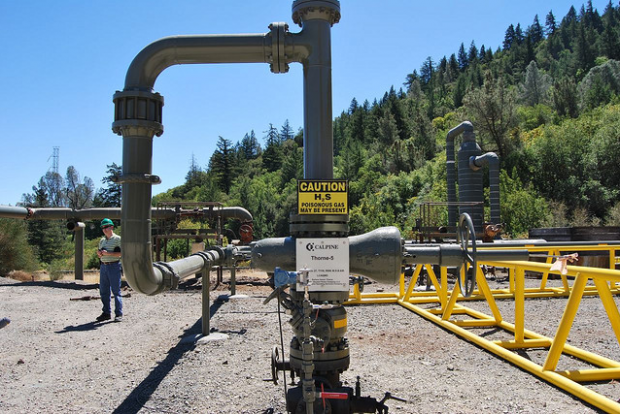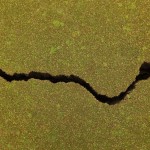Scientists Present Report Linking Oil and Gas Industry to Earthquakes

Courtesy of KQED Radio via Flickr Creative Commons
An injection well in Northern California, one of the most seismologically active regions in the country.
At a meeting of the Seismological Society of America today, scientists for the U.S. Geological Survey presented their much-anticipated findings linking the oil and gas industry with an increase in earthquakes in parts of the United States. (You can find NPR’s report on the findings here.)
The abstract released this week, which is still the only publicly available part of the study, says that “the acceleration in activity that began in 2009 appears to involve a combination of source regions of oil and gas production… to deep waste water injection wells.”
The report indicates that disposal wells, where liquid by-products from oil and gas excavation are stored, are linked to an uptick in earthquakes in states like Arkansas and Oklahoma. But what about here in Texas?
Here in the Lone Star State, the connection between seismic activity and disposal wells is probably just as strong, but the state has not seen the same recent increase in earthquakes, says Cliff Frohlich, Associate Director of UT’s Institute for Geophysics.
“They’ve been producing enormous volumes of oil and gas in Texas since the 1920s, and so it’s very possible that a lot of the earthquakes that I know about and do research on in Texas are related to oil and gas, but we certainly haven’t seen much of a change in the state as a whole. But that’s just because we do so much of it,” Frolich told StateImpact Texas.
Frolich, who we interviewed for a story earlier this year about links between earthquakes and disposal wells, has been focusing his attention on how some earthquakes may be caused not by putting liquids into the ground, but by removing fossil fuels out of the ground.
“If you take enough stuff out of the ground, it’s going to change the stress field. I mean there’s earthquakes related to mining. You remove material underground, and things collapse, and faults slip and so on — the same is true for oil and gas,” he said.
But Frohlich urges people not to read too much into the recent findings. Noting that natural gas production usually involves many different steps, Frohlich says the “scale” of the earthquakes produced by disposal wells are “usually pretty small.”
“Industry is aware that there are thousands of producing fields and tens of thousands of injection wells and you have a handful of earthquakes and their attitude is, ‘We’ve been doing this for years, and so whats the problem?'” said Frohlich. “The public hears ‘earthquakes’ and they’re afraid they’re going to have a Haiti or a japan in Dallas. Which isn’t going to happen.”
The U.S. Geological Survey says the full research presented today will be published this June.




